scanable id cards online
Fake ID Cards Online: Product Introduction, Features, FAQs, User Reviews, Troubleshooting, and Conclusion
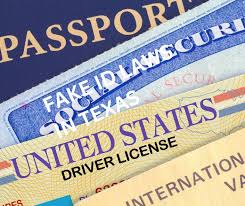
In today's digital age, the demand for easily accessible and versatile identification solutions has grown significantly. Among the most sought-after solutions are scannable fake ID cards available online. This product has become increasingly popular among individuals seeking anonymity, entertainment, or novelty. However, it’s essential to understand the implications, features, and potential issues associated with such products. This article provides an in-depth look at scannable fake ID cards, covering their introduction, features, frequently asked questions, user reviews, troubleshooting, and a concluding assessment.
Product Introduction
Scannable fake ID cards are imitation identification cards that replicate the appearance, details, and functionalities of official ID cards. These cards are designed to be indistinguishable from real IDs at first glance and are equipped with scannable features, such as barcodes or magnetic strips, that pass basic verification checks. They are typically used for novelty purposes, such as entering age-restricted venues like bars or clubs, or for other forms of entertainment where an ID might be required but legal consequences are minimal.
The appeal of these fake ID cards lies in their accessibility. They can be ordered online, customized with personal details, and delivered discreetly. The process of obtaining these IDs is straightforward, making them an attractive option for individuals seeking quick and easy access to identification tools.
Features of Scannable Fake ID Cards
High-Quality Design: Modern fake ID cards are crafted using advanced printing techniques and materials that closely mimic the look and feel of genuine IDs. This includes features like holograms, UV printing, and precise color matching, ensuring that the card appears legitimate.
Scannable Barcodes and Magnetic Strips: One of the key features of these fake IDs is their scannable elements. Many cards come equipped with barcodes or magnetic strips that can pass basic electronic verification systems used in various establishments.
Customizable Information: Customers can customize their fake ID cards with personal details, including name, date of birth, address, and photo. This customization extends to the choice of state or country, allowing users to choose from a variety of ID formats.
Discrete Packaging: To ensure privacy and avoid any legal complications, these fake ID cards are typically shipped in discreet packaging. This reduces the risk of interception or unwanted attention during the delivery process.
Affordability: Compared to the potential risks of acquiring a real ID through illegal means, scannable fake IDs are relatively inexpensive. Prices vary depending on the complexity of the ID, but they are generally affordable for most users.
Availability Across Jurisdictions: These fake IDs are available for various regions, including different states within the U.S., as well as other countries. This broad availability caters to a wide audience.
Frequently Asked Questions (FAQs)
Q1: Are scannable fake ID cards legal?
A1: No, scannable fake ID cards are not legal. While they may pass as real in certain situations, the use of a fake ID is illegal and can result in serious legal consequences if caught. They are typically marketed for novelty purposes only, and users should be aware of the risks involved.
Q2: Can these IDs pass as real in all situations?
A2: Scannable fake ID cards are designed to pass basic checks, such as visual inspections and barcode scans. However, they may not hold up under more rigorous scrutiny, such as in-depth examination by law enforcement or during more sophisticated verification processes.
Q3: How are fake IDs delivered?
A3: Fake IDs are usually delivered via mail in discreet packaging. This is done to ensure privacy and to reduce the likelihood of interception by postal authorities or customs.
Q4: What information do I need to provide to order a fake ID?
A4: To order a fake ID, you will typically need to provide details such as your name, date of birth, address, and a photo. Some services may also ask for additional information, depending on the level of customization you require.
Q5: What should I do if my fake ID is seized?
A5: If your fake ID is seized, it is advisable to cease any further use of such products. Contacting the seller might be an option, but be aware that this could draw unwanted attention. The best course of action is to avoid using fake IDs altogether to prevent legal issues.
User Reviews
User feedback on scannable fake ID cards is mixed, with experiences varying based on the quality of the card, the seller, and the situation in which the card was used. Below are some common sentiments expressed by users:
- Positive Experiences:
- "I ordered a scannable fake ID for a novelty event, and it worked perfectly. The barcode scanned without any issues, and the card looked just like a real one."
- "The customization options were great, and the ID arrived quickly. I’m impressed with how authentic it looks."
- Negative Experiences:
- "My fake ID didn’t scan at the bar, and I was almost caught. I wouldn’t recommend relying on these for anything serious."
- "The ID looked good at first, but the hologram was slightly off. A bouncer noticed and confiscated it immediately."
- Mixed Experiences:
- "The ID worked fine in some places but failed in others. It’s a gamble, so I wouldn’t use it in high-risk situations."
- "Customer service was helpful when I had an issue with the order, but the product quality was inconsistent."
Overall, while some users are satisfied with the product, others caution against relying on fake IDs due to the potential risks involved.
Troubleshooting and Solutions
Problem 1: The ID Card Doesn’t Scan
One of the most common issues users face is a fake ID that fails to scan. This can occur for several reasons, such as improper encoding of the barcode or magnetic strip, or because the scanner being used is more advanced than expected.
Solution:
- Check the ID for Visible Defects: Inspect the barcode or magnetic strip for any visible damage or misalignment.
- Try a Different Scanner: Some scanners are more forgiving than others. Try using the ID at a different venue with a different scanner.
- Contact the Seller: If the ID consistently fails to scan, contact the seller to request a replacement or refund. Ensure to do this cautiously to avoid any legal implications.
Problem 2: The ID Card Looks Fake Upon Close Inspection
Another common issue is that the ID might pass at a glance but looks fake upon closer inspection, especially under UV light or with a detailed examination of the holograms.
Solution:
- Enhance Customization: When ordering, opt for the highest level of customization, including accurate holograms and UV printing. Some sellers offer more realistic features for an additional fee.
- Use in Low-Risk Situations: Avoid using the ID in situations where it is likely to be closely examined, such as when interacting with law enforcement or when traveling.
Problem 3: The ID Card Is Seized
If your fake ID is seized by authorities or staff at a venue, this can lead to serious consequences.
Solution:
- Remain Calm: If your ID is confiscated, remain calm and avoid drawing further attention to yourself.
- Avoid Reusing the Service: Consider this a warning sign and avoid purchasing or using fake IDs in the future. The risks involved are not worth the potential consequences.
Conclusion
Scannable fake ID cards offer a tempting solution for those in need of an alternative identification method, but they come with significant risks. While the product itself can be impressive in terms of design and functionality, it is important to remember that the use of fake IDs is illegal and can lead to serious legal issues if caught.
The features of these fake IDs, such as high-quality design, scannable elements, and customization options, make them seem like a viable option for some users. However, the mixed user reviews and common problems highlight the potential pitfalls. Issues like non-scannable IDs, visible defects, and the risk of confiscation should make potential users think twice before making a purchase.
In summary, while scannable fake ID cards are available online and can serve their intended purpose in certain situations, the risks often outweigh the benefits. Those considering using such products should carefully weigh the potential legal and personal consequences before proceeding. Ultimately, the best course of action is to avoid using fake IDs altogether and seek legal and legitimate alternatives for identification needs.
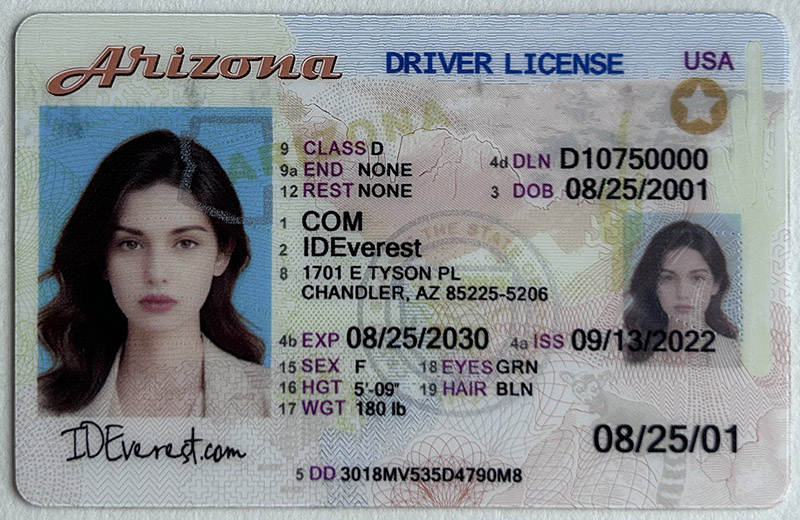 Arizona Fake ID Cards
Arizona Fake ID Cards
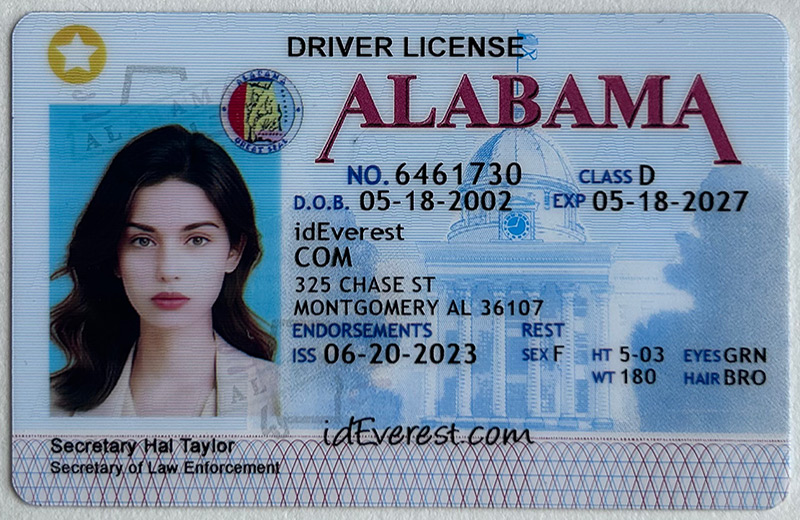 ideverest scans Alabama fake I
ideverest scans Alabama fake I
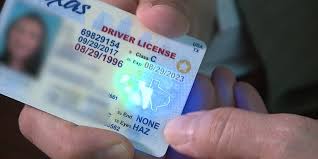 Fake Florida DL
Fake Florida DL
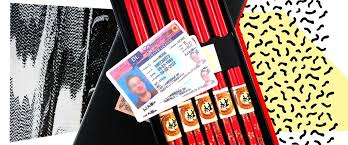 scannable Fake US-Green Card
scannable Fake US-Green Card